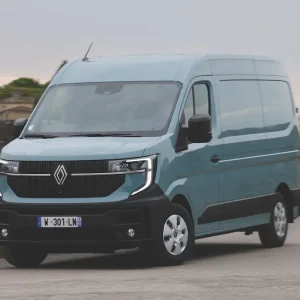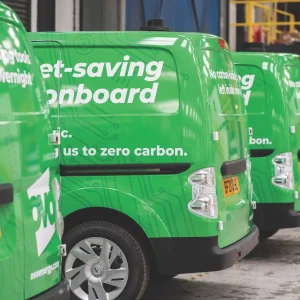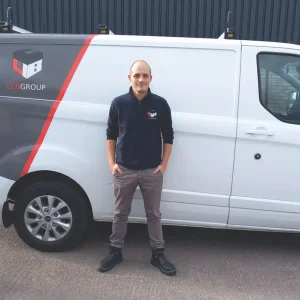Cutting emissions to improve air quality in our cities and cut environmental damage is the biggest challenge facing the UK LCV industry, with the explosion in dotcom shopping bringing increasing numbers of delivery vans into urban areas.
Pure-electric technology continues to advance and may provide a long-term solution, but problems remain to be overcome with range and charging infrastructure, and for the time being the numbers of electric models in operation represent a drop in the ocean of the overall LCV parc.
So when Ford develops a practical, ready-to-go vehicle that offers businesses a way to cut emissions and escape congestion charges without compromising their operations, the industry sits up and takes notice.
The Ford Transit Custom medium van is by far the UK’s most popular LCV, and the latest addition to the line-up is a plug-in hybrid version, the Transit Custom PHEV.
The beauty of the PHEV is that by combining a petrol motor with a battery it can end range anxiety by travelling long distances intercity but switch to zero-emissions in urban settings.
While such hybrid technology does exist elsewhere – in the LEVC London taxi and van, for example – as the major volume player in the light commercial sector Ford is introducing it to a potentially much larger market.
The brand claims the Custom PHEV will account for 10% of the model range’s total sales within two years. In the year to the end of October, Ford had sold 45,866 Custom vans, according to the Society of Motor Manufacturers and Traders, more than twice as many as the UK’s second best-seller, its big brother the 2.0t Transit.
Ford trialled the Custom PHEV in London, which operates an Ultra Low Emission Zone, with businesses including Heathrow Airport, Sky, Speedy Hire, Transport for London, British Gas and Vodafone. With a claimed zero-emission range of 35 miles, the manufacturer believes that in the short to medium term the Custom PHEV presents the most practical option available for operators trying to meet clean-air targets in cities before the charging infrastructure is improved and the battery ranges of pure-electric vans extended.
“Businesses still have legitimate concerns about the range of fully electric vehicles, as well as their cost-effectiveness and reliability,” says Mark Harvey, director of Ford’s Urban Electrified Van programme. “These trials have helped Ford and its customers to investigate the extent to which PHEVs can help to achieve urban air quality goals, whilst not compromising on productivity.”
During the trial, Ford claims 75% of the fleets’ mileage in central London and 49% in Greater London was completed using pure-electric power, which it says proves that even without a fully established EV charging network, the hybrid vans can reduce tailpipe emissions in the inner city while also utilising the flexibility of a petrol range-extender to complete longer journeys when required. Ford claims a total range capability of 310 miles for the hybrid van and over this distance puts fuel economy at 91.7mpg and CO2 emissions at 60g/km.
Simon Robinson, chief programme engineer for Special Commercial Vehicles at Ford, describes the Custom PHEV as “a stepping stone into electrification”.
Ford expects customers to charge the Custom PHEV at home or at the depot rather than at public charging points and says filling up takes 4.3 hours via a domestic 240V 10A power supply or 2.7 hours with a commercial type-2AC charger.
A geofencing module will become a standard fit on the Custom PHEV from spring 2020. This will automatically switch the van to EV Now mode when it enters a controlled-emission zone if sufficient battery power is available.
A mild hybrid (MHEV) Ecoblue Custom complements the Custom PHEV in the Ford range and, together, the two derivatives scooped the International Van of the Year Award for 2020.
Highly Commended: LDV
The runner-up in the Green Manufacturer category is LDV, which is worthy of recognition due to its roll-out of electric vans.
At the Commercial Vehicle Show in April, LDV unveiled its medium-sized EV30, which will join the EV80 large van in the range.
An 85kW motor powers the van in tandem with a choice of two battery packs: a 35kWh battery offers a claimed range of 127 miles while a 53kWh battery provides 200 miles.
Rapid battery charging takes 45 minutes for an 80% capacity while a full charge can be completed in five hours, according to LDV. The EV30 is set to arrive in showrooms in the first quarter of 2020.
The EV80 has been on sale for more than a year and a half and has risen to prominence as a delivery van for Milk and More.






